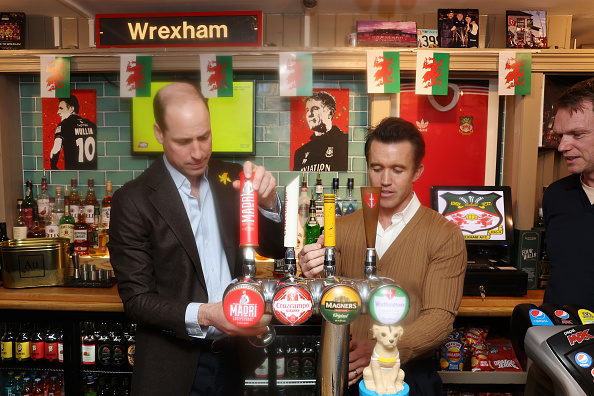By Dustin Rowles | TV | June 13, 2025

Wrexham AFC has been one of the rare feel-good stories anywhere in the world over the last four years. The club has achieved a record-breaking three straight promotions, while Welcome to Wrexham continues to draw audiences desperate for inspiration. I love the show, even though it’s hard to ignore how curated it feels — more Instagram highlight reel than documentary. The rough edges have been softened, and what’s often left out is the complicated reality of what that much success, and that much money, can do to a place.
Massive success always brings ripple effects. You can’t inject millions into a city without displacing some of what made it special in the first place. Small businesses get pushed out by chains, rents skyrocket, and local culture risks being scrubbed away to make room for something sleeker, shinier, and more profitable. I was just in Boston’s Seaport District for the first time in years and stayed in a stunning new hotel, one that now overlooks what used to be a post-industrial wasteland where I once worked. It was beautiful, and also kind of heartbreaking. That tension, between pride and unease, is something Wrexham will have to navigate too.
Unlike major football cities, Wrexham is still small, and the Racecourse Ground holds fewer than 15,000 people. No matter how beloved the team is or how much cash floods in, there is a ceiling.
“You get into a situation where you are playing teams with 60-to-80,000 seat stadiums, and their match day income for one game is more than we take in an entire season right now,” executive director Humphrey Ker told The Wrap. “But we’ll just keep charging at them, tilting at windmills and see how we get on.”
That spirit has carried them this far, but Ker knows reality is waiting. With Wrexham’s promotion to the Championship League, he’s already bracing for the climb to flatten out.
“I, for one, have always had this eye on the possibility that, at some stage, we’ll plateau to a certain extent, and we’ll find ourselves in a situation where we’re not winning every week. We’re not doing extraordinary things,” he said. “How we’ll react to that, how the wider world will react to that, we ultimately have to see. But we at least are armed with the foreknowledge that it is probably going to come.”
And that moment, when Wrexham stops being a miracle story and starts being a mid-table team fighting to survive, might actually make for compelling television. A little struggle could be good for the narrative. The rise has been thrilling, but they’re overdue for a dose of humility. Yes, Reynolds, McElhenney, and their well-funded backers have deep pockets, but how can they compete with Premier League behemoths with oil money, elite academies, and generational infrastructure? Wrexham is trying to compress decades of development into a couple of years. It’s a nearly impossible task.
Already, the consequences are showing. Some of the players who got them here — fan favorites, local legends — are being left behind. At each level, the club has to upgrade. Heroes like Paul Mullin risk being pushed aside by necessity, not disloyalty. And it’s not just the roster that’s changing. It’s the town.
“We’re seeing an awful lot of kind of new money pouring into Wrexham that has nothing to do with us,” Ker said. “What’s a challenge for us, and we have to try and keep to the fore, is remaining receptive, open and friendly to local businesses and local sponsors. Those are the people that kept the club going for years and years and years before we came along. We’ve got to try and make sure there’s always a blend of international, national and local.”
That’s easier said than done. How happy will locals be when the spaces they’ve always claimed as their own — pubs, storefronts, public squares — start catering to tourists and celebrity chasers (something that’s probably already happening)? That cozy, humble pub from the early seasons of Wrexham? Odds are, it’s already halfway to being a novelty destination. You worry what might happen when the venture capital crowd sets their sights on the rest of the town.
Wrexham’s story isn’t over. But the next chapter won’t just be about overcoming odds on the pitch. It will be about holding onto identity and community in the face of transformation. And whether that’s even possible. Success is great, until it isn’t.